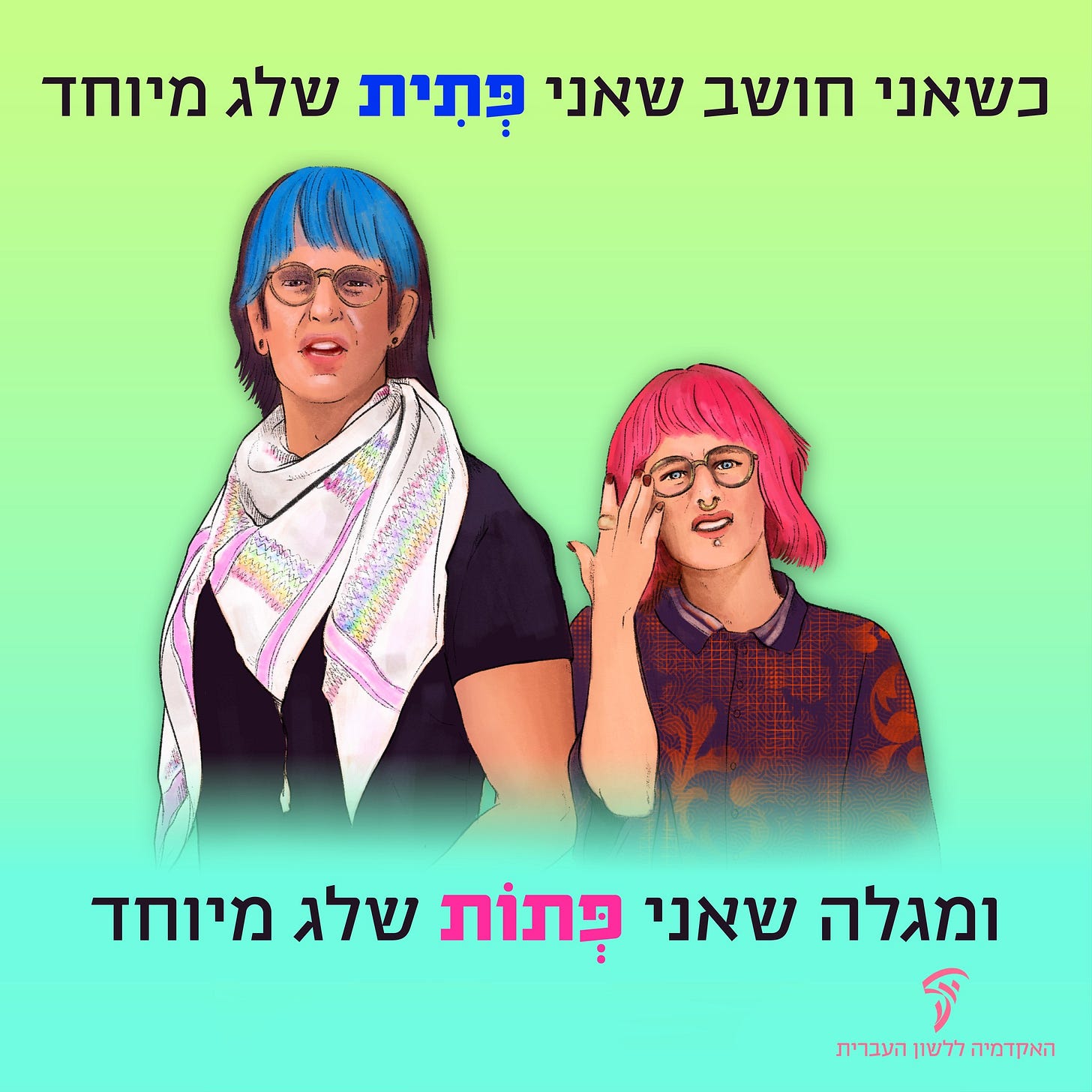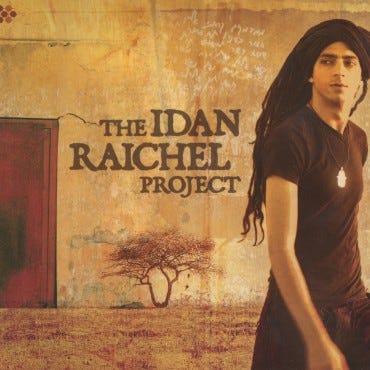In with the Old, In with the New: A Guide to Israeli Culture
Herzl chose the name 'Altneuland' for his classic - the perfect name for a land being reinvigorated and refreshed by modernity while holding onto its ancient roots.
Before we dive into wonderland with each area of Israeli culture, here is an overview that addresses a few staples.
It seems important when diving into an idea to first define it. According to the Merriam-Webster dictionary (curious how they achieved this monopoly…), ‘culture’ is:
“the customary beliefs, social forms, and material traits of a racial, religious, or social group”
also : “the characteristic features of everyday existence (such as diversions or a way of life) shared by people in a place or time”
That gives us a lot to work with, so let’s break it down a bit. If we focus on the customs, beliefs, and material traits of a given group, we are left with quite a lot more than merely music, food, literature, art, design, etc.
Zooming out for a moment, culture can also be seen as the way of doing things, as we might think of when developing a ‘work culture’, hearing about ‘woke culture’, or learning about ‘deaf culture’. We are not merely boiling a society down to its facets of doing, but rather shining a light on its being. We can make all sorts of observations about ‘classic’ Israeli music or what we see as Israeli food, but if we dig just a little deeper, we might just find treasure.
“As we have seen, Israel's cultural founding fathers and mothers perceived a national imperative in creating one society where ethnic individuality and varied cultural backgrounds would be subsumed within a homogenous “Israeli” society. That perception is very much a thing of the past. Israel is a multi-cultural society, and it is now accepted that the country stands only to benefit from retaining cultural individuality while striving to achieve a parallel Israeli culture which will absorb and be enriched by the manifold strands that make up the whole.” - Asher Weill, “Israeli Arts, Culture & Literature: Fifty Years of Culture in Israel - From “Melting Pot” to “Bouillabaisse””
This quote shakes off the ‘melting pot’ model in favor of a ‘tossed salad’ model. Instead of every ingredient becoming part of one whole and thus indistinguishable from other parts, everything exists alongside each other and contributes to something delicious (or in this case successful or thriving).
Israeli culture can be looked at from the outside and from the inside. As an oleh (immigrant to Israel), it’s possible that I might have the advantage of seeing it as an outsider and an insider (in progress).
Asked in a lightning round which words make a Diaspora Jew think of Israeli culture, they might think of “aggressive”, “hi-tech”, “spiky, but soft at the center”, “hospitable”, “direct”, and quite a few other adjectives that might come to mind for you. There is no one-size-fits-all interpretation of Israeli culture. We might pick up on different things, but some themes might tie it together in order for us to develop a shared language and talk about it.
Something that stands out for me is the reverence for the ancient, while embracing the modern. That characteristic is seen starkly in Jerusalem, where you can gaze upon the Old City and the Western Wall while also admiring (or for some, fierely disliking) the Chord Bridge and the light rail. Ancient sites abound and day tours can be filled to the brim with excursions, while one also has the opportunity to get a fancy cocktail at a secretive bar called Gatsby. Both can be held at once. A day tour of the City of David can end with a meat empanada at the Machane Yehuda shuk (market, and also my personal happy place) or another culinary delight from all corners of the world.
Even Machane Yehuda, the source of nourishment for the body and the soul, has transformed. The main produce sections of the shuk look almost identical to the shuk of the 50s, but come back at night and witness a nightlife that has blossomed. Club music, drinks, and the graffiti and murals painted on the shuk stalls (bastot) all morph this Middle Eastern market into something quite different. Although a taste of tradition shows itself with the occasional, “Shalom to you, my American friend. I make special price for you. Free chaser with all cocktails.” And you don’t have to be a friar (someone who is taken advantage of) in order to take that person up on the offer. Maybe it is a special price. Oh no, they’ve got me.

Once again, looking around at the people, smells, and tastes of the shuk, displays a beautiful display of old meeting new. Spices from the days of old sit alongside a cellphone store. As you wander about, you may witness a Haredi Jew with traditional black and white garb complimented by an Airpod on which he could be listening to a Torah shiur or his Discover Weekly playlist on Spotify that holds Bob Marley and Frank Sinatra at once. Anachronisms all around - this is Israel.
Going back to the original dictionary definition of ‘culture’, we can see that a culture evolves. This evolution can hold onto a taste of the previous generation. Israel does this in a way that I didn’t see in the old country (America). Other countries certainly blend old and new in music and food, but I regularly felt back in the US of A that modernity was being hugged tightly, while the youths often take an ‘ok, boomer’ attitude to previous generations. Not that there isn’t respect for the elders and excitement over a vintage find at a thrift shop, but there doesn’t seem to be as much of an intertwining of the classic and modern.
This blend presents itself a lot in Israeli music.
One example of this is the highly popular (in Israel and the Diaspora) Idan Raichel (Project) (bring back the rastot/dreadlocks!) which brought together musicians of all backgrounds with styles going far back in time. The popularity goes beyond reverence for the music of old, as quite a few people have enjoyed this music as, dare I say it, cool. This blend of cultures and times is a signal towards the truth of Israelis coming from so many places - from the Far East to the West and quite a few places in between. Immigrants from past generations have come from a large list of countries with many pronounced differences.
Instead of being embarrassed of their heritage, I’ve found that many Israelis are proud of it. Israelis of Yemenite heritage might be prouder than those of Lithuanian heritage (or maybe that’s just me). Whether it’s savta’s tabeet (an Iraqi cholent in some way with chicken, rice, and the MVP of the dish, baharat - a delicacy that both my wife and brother-in-law make deliciously) or Uncle Omer’s oud, the throwbacks aren’t even throwbacks here. People don’t have to go through old recipe books and pull out a surprise once a while. Many dishes and songs are regularly tasted and heard.
Something that makes Israel special and unique is its integration of so many cultures. The US might not have all Americans celebrating Dia de Los Muertos as a result of Mexican immigrants, but Israelis very widely celebrate mimouna, which is the Moroccan festival at the end of Passover. So many immigrants from North Africa and the Middle East bring their foods, music, language (that finds its way into slang), and so much more. These throwbacks to previous generations are a staple of Israeli culture.
Some might say that Hollywood and other American influences have thrust Israel into modernity with fashion trends and entertainment choices, but I personally haven’t witnessed an abandonment of the ways of our parents and grandparents. Friday night dinner is still a beloved part of the week for religious and secular Israelis. Even outside of a religious framework, this has remained an opportunity for families to come together.
Friend culture can be different at times in Israel as well. Due to Israel being relatively small and many university students living at home, it’s not rare for Israelis to stick with their friends from growing up and the army. Many Israelis go home (childhood home or to family) for Shabbat and the weekend, and thus might not be looking for friends in the same way that immigrants or others around the world do.
Food is yet another arena where these differences are embraced. Yemenite foods like malawach and jachnun are fixtures of the Israeli pallet. Ethiopian cuisine is also enjoyed by many and doesn’t feel quite like going to a Chinese or Indian restaurant elsewhere. It might be considered ‘ethnic’ food to some, but it just feels like food here.
Hebrew is no exception. When Eliezer Ben-Yehuda, the creator, of modern Hebrew, crafted words to be spoken by this young nation, he took a great deal of inspiration from the Torah, breathing new life into certain words. Slang has taken off and brings together words from different languages, like English, Arabic, and Russian, and they are often rattled off without knowledge of their source. The Academy of the Hebrew Language is regularly adding new words to the dictionary and boy do they do it in style. Their social media game is strong, very strong.

With this reference to Eretz Nehederet (A Wonderful Country), think Israel’s Saturday Night Live, comedy in Israel also possesses its unique feel. A future post will discuss comedy in Israel and what sets it apart.
Being direct is another feature of culture here. It might be seen as abrupt or too assertive by people from abroad, but it certainly has its benefits. People generally mean what they say and say what they mean. You might not always like what you hear, especially if it’s parenting advice or a fashion critique, but the positive side of the coin is that there is a genuine quality that people bring to the table and you can generally rest assured that people aren’t trying to butter you up (if they’re not a politician or trying to sell you something).
Each week, a different aspect of Israeli culture will be explored. I hope that you’ll stay along for the ride.
Below are some treats that will recur each week: a song of the week and slang of the week.
Song of the Week
Jasmin Moallem has become quite the force in Israeli music. I first saw her at a music festival and then at a free show at the Yafo Port last summer. She started off as more of a rapper, but has since shown off her vocal talents.
לבד במדבר
Leh-vawd bah-meed-bar
Alone in the desert
Slang of the Week
פינוק
Pee-nook
A treat
Maybe one day there will be a “Treat Yoself” in Hebrew. To be considered…
Todah Rabah for reading and I hope you will stay tuned and continue to engage with these posts and to embrace Israeli culture a little more than you might already do. It’s a real pleasure to write these and I hope that you enjoy. Keep your ears peeled for our first podcast episode coming up later this month.
I will be abroad for the next two weeks, which will afford me the opportunity to conduct some sociological research on the cultural choices of the Israeli community of South Florida. After a two week break, Sababoosh will continue with full force.



